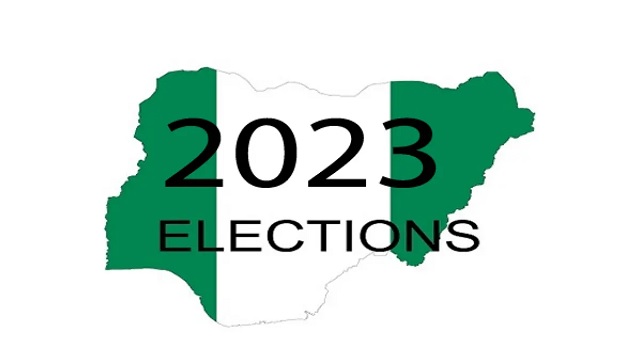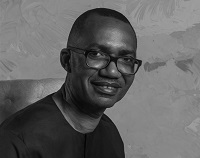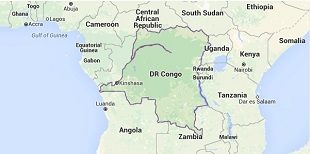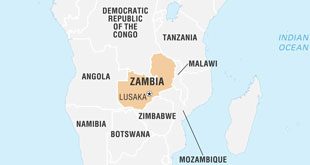
How Africa’s media covered Nigeria recent general elections and why it matters for the next coverage
COMMENT | Azubuike Ishiekwene | Between February and March 2023, Nigerians went to the polls to elect a new President and parliament. This was the seventh national vote since Nigeria’s transition from military rule in 1999.
With one out of every four Africans being a Nigerian, the country is Africa’s largest democracy and the most populous black nation globally. Its population is expected to overtake that of the U.S. in size by 2050 to become the world’s second-largest democracy. It’s also the largest economy on the continent.
Nigeria’s new electoral law provided a five-month public campaign period for political parties – up from the previous three-month duration. How did Africa’s media take advantage of these extended timelines to provide nuanced coverage?
It’s common to hear of how poorly the Western press portrays Africa and how Western journalists report mostly stories about disease, death and destruction, judiciously sprinkled with prejudice about tribe, religion and poverty.
Yet the paradox of this charge, even in the run-up to Nigeria’s recent presidential election, is that politicians don’t seem to think they would have a good outing until they have paraded themselves before the foreign press. For example, London’s Chatham House, a private think tank, is the favourite staging post of Nigerian politicians.
So how did African journalists cover the continent’s most important political story?
Nigeria’s media, famous for vibrancy as it is for its fleetingness and partisan cacophony, is not yet out of election mode, especially following the bitter post-election wrangling among the major parties – the ruling All Progressives Party (APC), the People’s Democratic Party (PDP); and the new table shaker, the Labour Party (LP).
Anyone following the Nigerian media, especially social media, might be forgiven for thinking Armageddon is at hand.
Lanre Idowu, the Editor-In-Chief of Media Review and a member of Nigeria’s National Ombudsman, said coverage was not rigorous enough, mainly because of the many political parties (18) involved.
“That it was so easy for candidates to pick and choose who could interview them weakened the place and importance of the media as agenda-setters,” he said. “Sections of the media overreached themselves in how they reported the elections, not showing sufficient conflict-sensitivity.”
If charity failed at home, how much attention did the continent’s media pay, considering what was at stake at the bilateral or multilateral levels?
In Ghana, Joy FM, the leading radio station in the country that broadcasts in English, used feeds from a few Nigerian sources and conducted some live interviews. But most Ghanaian press tucked the election stories inside, scrapping whatever little content they could find from online sources.
The Editor of a major Ghanaian newspaper, The Chronicle, Emmanuel Akli, explained why:
“The Ghanaian economy is in a very bad shape. The press is struggling. Readership is very low. Advertising is even worse. We are all struggling, and that includes Daily Graphic the biggest daily. We can’t even cover internal issues well, much less sending reporters to cover elections in Nigeria!”
Sierra Leonean journalists didn’t fare better. They mainly relied on reports from the foreign press, mostly BBC, for their coverage.
“It is always the wish of journalists to cover stories beyond the shores of Sierra Leone, but financial limitations have been the challenge,” said Abdul Rahman Kamara, Manager at Sierra Leone’s Star TV.
Kamara agreed that African journalists need to do more about the African story, or the foreign media would hijack the narrative: “Doing so requires a consensus that we set our own agenda through media conglomerates sharing the ideas and putting Africa first,” he said.
South Africa’s press tried to do a better job of it, with Mail & Guardian reporting the anxiety in Nigeria while voters waited for the results. Times Live covered the story of the main opposition People’s Democratic Party (PDP) candidate, Atiku Abubakar, leading a protest against the results after they were released.
Yet, the coverage was nothing compared with the massive interest in the ongoing war between Russia and Ukraine, for example, or the Julius Malema protests.
A senior South African journalist, Ferial Haffajee, put it this way: “South African media is pretty myopic. There was some interest in Peter Obi’s chances as an outsider who resonated with young people. There was more coverage of the cash crisis (in Nigeria) and its possible impact on the election’s outcome. Burna Boy is bigger news here, to be honest,” said Haffajee.
In Kenya, perhaps because of the country’s recent history of electoral violence, journalists were particularly sensitive to what was happening in Nigeria.
An article in one of the country’s leading newspapers, Nation, was titled, “Why Kenya should closely follow Nigeria elections.” The writer, Muliro Wilfred Nasongo, provided insights covering everything from what the elections mean to Nigeria to why Kenyans must follow the outcome.
Nasongo’s piece was a breath of fresh air in a moment of eccentricities when African journalists either unable or unwilling to tell an important continental story appeared to have outsourced responsibility, yet again, to foreign media networks.
It won’t be long before Nigerian journalists, and perhaps journalists in the continent, face yet another test.
The Sierra Leonean general elections, which may be one of the country’s most hotly contested in decades, will be held on June 24, 2023.
Sierra Leone has emerged from years of civil war that only ended in 2002. The scramble for blood diamonds may have caused the war, but it was sustained and prolonged by a weak and corrupt political system.
While the continent collectively rocks to the Afrobeat of its music stars, Sierra Leone’s general elections in June shouldn’t be another outsourced African story. A vigilant continental media could help ensure that the country does not become the sixth African country in three years to slide into chaos over disputed elections.
*****

Azubuike Ishiekwene is a journalist and Editor-in-Chief at LEADERSHIP Media Group.
 The Independent Uganda: You get the Truth we Pay the Price
The Independent Uganda: You get the Truth we Pay the Price


